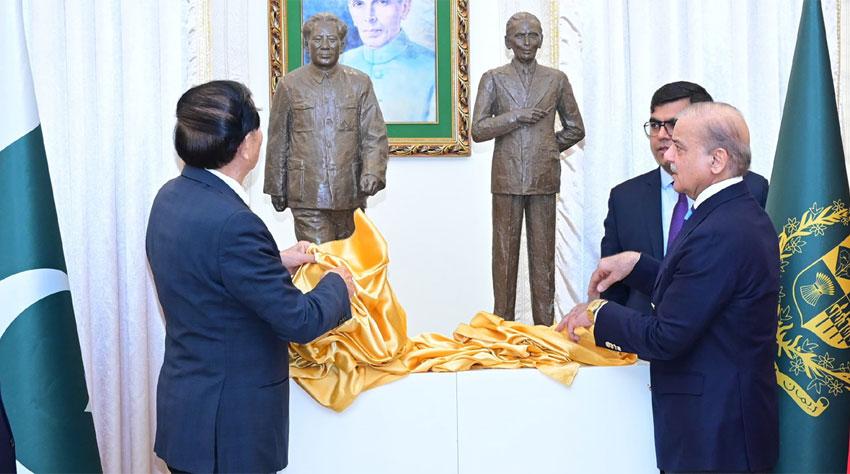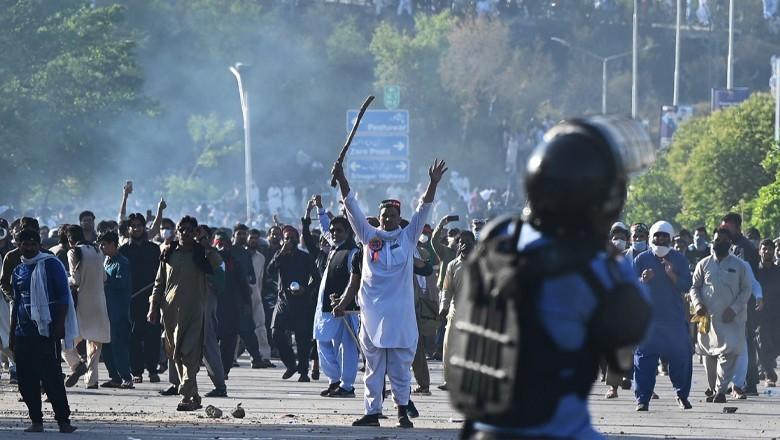Pakistan urges ‘strict’ implementation of Indus Waters Treaty, an Indo-Pak water-sharing pact
Ambassador Munir Akram tells the UN Security Council’s high-level debate on the impact of climate change that tncreasing water demand, coupled with climate change impacts, creates the potential for trans-boundary water disputes in several parts of the world.


New York: A top Pakistani diplomat Tuesday called for “strict” implementation of the 1960 Indus Waters Treaty (IWT), a World Bank-negotiated water-distribution agreement between India and Pakistan, as he underscored the need to address the looming water crisis.
“Increasing water demand, coupled with climate change impacts, creates the potential for trans-boundary water disputes in several parts of the world,” Ambassador Munir Akram told the UN Security Council’s high-level debate on the impact of climate change and food insecurity on international peace and security.
“Pakistan attaches high priority to the strict implementation of the Indus Waters Treaty,” the Pakistani envoy stressed in the course of the day-long debate, which was convened by Guyana, the president of the Security Council for February. Nearly 90 countries took part. Pakistan, he added, aims to reinvigorate the Indus River basin — the largest contiguous irrigation system in the world, which provides food security to over 225 million people.
“To this end, Pakistan has launched the multi-dimensional Living Indus projects,” Ambassador Akram told the 15-member Council. Noting that the disputes over water – at the state, sub-national and local-community levels – were rising, he said competing claims to agricultural and animal pastures, especially in Sub-Sahara and Central Africa, were being exploited by terrorist groups and criminal gangs.
“The scramble for exploitation of fisheries and fishing rights, and potentially for seabed minerals and resources, is causing increased friction between neighbouring coastal countries,” he pointed out. “Addressing the looming water crisis will be critical,” Ambassador Akram added.
Extreme temperatures, he said, were melting Pakistan’s glaciers at an alarming rate, and together with heavier monsoons, lead to massive foods, like the 2022 epic floods which devastated the country, causing damage amounting to over US$ 30 billion. “Urgent action is required to preserve the Himalayan glaciers and adapt to the impacts of global warming,” the Pakistani envoy told delegates from around the world. When addressing climate change, securitizing the issue in the development agenda must be avoided, Ambassador Akram said.
The already scarce funding should not be diverted from development and climate change actions to security-related approaches. Scarcity is the mother of most conflicts, he said, adding that the best means of conflict prevention is sustainable development, achieving the SDGs (Sustainable Development Goals) and the climate goals.
“Unless the commitments made at COP-28 and other Conferences are implemented, ” Ambassador Akram said, “it will become almost impossible to achieve either the goals of climate change or the SDGs.”
The Security Council, he said, could make a singular contribution to both the climate and development goals – by endorsing the commitments made on climate change and sustainable development to transform these into binding obligations. Opening the debate, UN Secretary-General Antonio Guterres called on member states to act now to break the deadly links between conflict, climate and food insecurity. Climate chaos and food crises are serious and mounting threats to global peace and security.
It is only right that they are addressed by this Council, he said. Climate disasters and conflict both inflame inequalities, imperil livelihoods, and force people from their homes, the UN chief said, They are also two of the leading drivers of the global food crisis, with almost 174 million worldwide affected in 2022.
The UN chief said he was dismayed that the world is teeming with examples of the devastating relationships between hunger and conflict. One such situation is Gaza, where no one has enough to eat, Guterres said. Of the 700,000 hungriest people in the world, four in five inhabit that tiny strip of land. Furthermore, he said, climate disasters add another dimension to the suffering in many places. All 14 countries that are most at risk from climate change are experiencing conflict, with 13 also facing humanitarian crisis.

Punjab education boards release intermediate exam results
- 3 hours ago

Ready to make sacrifice for integrity, sovereignty of Pakistan: DG ISPR
- 2 hours ago

Money laundering case: Efforts ordered to re-arrest Moonis Elahi
- an hour ago

2nd day of Centurion Test: South Africa continues batting against Pakistan
- 2 hours ago

Cabinet accepts Maulana's demand, approves to issue madrassa registration law
- 9 minutes ago

LHC makes new schools registration conditional to bus policy
- 3 hours ago










